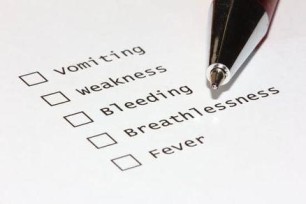General Insurance Blogs, Articles & Updates by - Magma HDI
Have us call you
- RENEW YOUR POLICY
- BUY NEW POLICY

Seven effective ways to sharpen your memory with increasing age
Memory loss is a prevalent problem among the elderly and a usual complaint from their caretakers. The good news is there are straightforward strategies to boost memory that aren't costly or tedious. Just as exercise helps your physical health, brain exercises develop your mind, enhancing your memory and reasoning abilities. Here are some measures you may take to retain and even upgrade memory.
Everyone fails to remember things periodically. Yet, loss of memory is not something to be neglected. However, there are no assurances for avoiding memory loss or dementia, but some activities could be surprisingly beneficial. Consider these seven easy strategies to strengthen your memory and know when to seek treatment for Alzheimer's disease.
1. Beauty sleep:
Sleep causes brain changes that help to cement memories. It also improves brain cell connections and aids in transmitting information from short to long-term memory. This implies that fresh memories made by older people are more likely to stick with them. Sound sleep can even help elevate mood and nourish the brain to perform to the best of its ability.
2. Maintain a social life:
Studies have demonstrated that social interaction is critical for the elderly's mental health and remembrance. Enjoying time with family and friends and attending activities may aid in the maintenance and improvement of cognitive processes.
3. Reduced sitting and increased movement:
According to several studies, seniors who participate in physical activities receive significantly greater oxygen to the brain. In addition, there is an increase in blood flow to regions of the brain linked with increased memory, which results in changes in mental health to fruitful levels. Increasing age demands constant physical movement to build an active lifestyle.
4. Better meals:
Modifying a veteran's nutrition to include foods rich in protein and unsaturated fats, such as fruits, vegetables, nuts, etc., can lower cholesterol levels. This reduces the risk of memory problems and heart attacks by preventing blood vessels from being blocked. Proper diet plays a crucial role in maintaining overall health and ensuring physical well-being.
5. Take a sensory exam:
Although this may seem clinical and unusual, sensory testing is a friendly approach to ensure that the brain is supple and robust. A sensory test creates new neural connections in the brain while also replenishing existing ones.
6. Carry out brain workout:
Learning new abilities such as playing an instrument, engaging in a pastime that requires hand-eye coordination, conducting memory exercises, and even doing arithmetic in your mind, has been shown to increase cognitive function and recollection.
7. Discover a new interest:
Numerous institutions and senior centres provide interesting, low-cost talks and workshops for seniors. Whether it's learning a new cuisine or honing your computer abilities, continuous education is a sure method to remain sharp.
Consult a doctor if you're concerned about your parents' memory loss, which can interfere with their ability to accomplish typical daily tasks. They will probably perform a medical examination and cognition and problem-solving abilities tests. Having insurance always comes in handy. Look for the best health insurance in India for parents and invest in one to make their life after retirement healthy.
Get the best health insurance in India for parents HERE.
Disclaimer: The information provided above is for illustrative purposes only. To get more details, please refer to policy wordings and prospectus before purchasing a policy.

Six signs of declining health conditions in aging adults
We often tend to take our health for granted at a young age. This is because in its young days, our body maintains stamina even if we may not properly care for it. But as we approach middle age, we realise how the stress and hustle of daily life make us neglect our health.
As we continue carrying the stress and burden of responsibilities on our shoulders, we forget that neglecting our health can be detrimental. It can be challenging to pay attention and recognise an illness before it has already done harm. Here are a few signs to look out for that indicate declining health conditions in aging adults.
1. Insomnia:
Adults deal with loads of responsibilities and stress daily. As hard as they work during the day, it can become just as hard to get a good night's sleep. Insomnia or sleepless nights can reflect a person's mental or physical stress, change in hormones, or fluctuating nutritional values that should be looked into before they worsen.
2. Deteriorating nutrition:
We are aware of how vital undertaking regular blood check-ups is. Adults should regularly get blood check-ups since they do not pay much attention to acquiring a nutritious diet. Deteriorating nutrition can cause a fluctuation in the body's levels of vitamins and minerals, which can lead to several health issues like weakness, loss of stamina and energy, etc.
3. Fragile bones:
As we grow older, our bones go through a lot of wear and tear. The ability to recover from broken bones and fractures drastically reduces for adults as they have lower bone density than children. Regular joint pain and fragile bones can indicate the onset of chronic conditions like arthritis, osteoporosis, etc.
4. Increasing comorbidities:
Comorbidities such as hypertension, diabetes, high cholesterol start to affect adults as they approach their late 40s. Securing a health insurance policy for family can help you ensure family safety in case of emergencies. However, maintaining your health by exercising, walking, taking vitamin supplements, etc., is essential to control these comorbidities.
5. Memory loss:
Brain function may be affected as we grow older and forget a few menial things. However, it becomes concerning when adults start to forget essential information like directions, identity, or recipes. Memory loss can indicate severe health conditions like dementia and Alzheimer's. Therefore, it is better to trace these early enough to treat these conditions right.
6. Digestion issues:
The most common thing that aging adults deal with is gut-health issues. Digestion can be affected by lifestyle choices, non-nutritional eating habits, genetic problems, etc. Chronic conditions like irritable bowel syndrome, diverticulitis, hemorrhoids, and gallstones usually begin when digestive issues are not resolved in time.
These are a few signs that point towards a deterioration in an adult's health conditions. While many individuals understand the importance of investing in health insurance for family and themselves, some face an uncertain future without it. A reliable health insurance policy for family acts as a backup plan that secures the health and safety of our loved ones, especially after entering into a specific age.
Click HERE to understand more about the different health insurance plans for you and your family.
Disclaimer: The information provided above is for illustrative purposes only. To get more details, please refer to policy wordings and prospectus before purchasing a policy.

Winter motorbike tips: What all you need to know for cold weather riding
Morning chill, dense fog, and cold weather are the signs of winter's arrival. Even visualizing yourself riding through the empty roads in freezing weather can shiver you with cold. Riding a motorcycle in winter can be challenging. Therefore, proper winter gear, clothing, and some tips are essential to consider while planning cold weather riding.
In this space, we've shared our best recommendations to make your winter motorcycle riding plan fool proof.
1. Warm yourself up; feel the heat:
Layering! Wind-blocking is simply the formula. Before you even think about your bike jacket, you need to put some layers of clothing barriers in place right near to your skin. Here's a brief guide.
• The base layer – a warm t-shirt
• A hoodie or fleece
• Motorcycle jackets – leathers aren't particularly appropriate for the cold. Instead, choose a warm, waterproof textile alternative
• A neck warmer or snood – especially if you're riding on the highway
• And finally, suitable warm gloves
• Layering your torso isn't enough. Invest in winter boots, layer-up socks, and pants
2. Charge up your batteries; don’t let them chill:
The chilled months can be difficult for your bike's battery since the colder temperature delay its chemical processes, causing it to cease operating. To keep it charged, you must ride your bike regularly. Utilizing a trickle charger to keep the battery completely charged can also help.
3. Ensure visibility; keep your vision clear as your enthusiasm:
Install a pin-lock and wipe your helmet visor with running water to keep it clear and fog-free. Don't go scrubbing since the salt and grime will damage your visor and cause it to become foggy.
4. Helmet; not for fashion but protection:
You should consider purchasing a winter-specific helmet with reduced front-end ventilation. And a visor that doesn't allow fog to settle in. Only buy a helmet that has ISI certification.
5. Clean your bike; to have consistent running:
Cleaning your bike in winter can be difficult, especially if you know you'll have to do it regularly. But hear us out, cleaning off the road salt can make a significant difference in the start of corrosion. You can use a protective lubricant and anti-corrosion spray to avoid components from melting into a puddle. It will also make cleaning the bike faster and easier. Winters invite unexpected damages and repair works to your bike. Next time when you buy warm clothes to be winter-ready, consider checking your bike maintenance and bike insurance policy to ensure your preparedness against the weather.
6. Monitor the weather; be the forecast expert:
Following the weather forecast is a must for every motorcyclist, especially during the winter months. By checking the weather online, you can prepare for a foggy day or lovely day accordingly.
Whether you’re planning for a long ride or a short trip to your neighbourhood store, cautious riding is essential to help navigate cold and wet roads. The freezing weather outside determines more than you think; when to slow down, be smooth, maintain enough distance for braking, following essential tips and ensure bike insurance to cover you for any eventuality. So check back regularly the above tips for comfortable riding and keep you protected on the bike throughout winter.
Click HERE to know about the best bike insurance plans before your next bike ride.
Disclaimer: The information provided above is for illustrative purposes only. To get more details, please refer to policy wordings and prospectus before purchasing a policy.

Implement these six tips for the maintenance of a car you don't drive often
We all know how much effort we have to put in to maintain a car that we drive daily. Now imagine the maintenance needed for one we do not drive that often. Of course, it is not essential to take care of an idle standing car in your garage, but it is vital to keep its maintenance top-notch irrespective of driving.
To help you get better at maintaining an idle car, we have mentioned some tips below that you can follow without going out of your way!
1. Change the oil frequently:
The engine is the heart of any vehicle. So even if you are not driving the vehicle, you must ensure that you are taking care of the engine and that the engine oil is changed frequently. This keeps the engine lubricated and improves the life of your vehicle. So you do not have to worry about its maintenance if you decide to use it in the future. Moreover, the engine is the most expensive part, so you might have to pay a hefty sum if it is damaged.
2. Go for a short drive:
When the manufacturers make a car, they keep it running throughout. So your vehicle's engine oil often circulates to the different parts of your engine and provides lubrication. When you leave your car idle for a long time, the engine parts tend to lose their lubrication and face damage. Also, if it is not used for a long time, your vehicle's battery will drain eventually.
3. Clean your car:
If you know that your vehicle will be idle for a long time without being touched, then you must have a routine to clean its interior and exterior regularly. You can cover your vehicle with a car body cover; this will protect it from all the dust, leaves, moisture that otherwise can ruin its texture. A car's paint undergoes severe damage due to factors like moisture, weather or climatic conditions, substance damage, etc. Schedule a bubble bath for your less operational vehicle at least once every month to maintain the glaze of its exterior.
4. Check for rodents and pests:
An idle car is the perfect breeding home for pests and rodents. The vehicle being untouched will make it an ideal environment for infestation. Rodents can put down the electrical circuits, seat cushions, wires and severely damage the interiors. All of these things will make your car of no use later on. So while cleaning your vehicle, make sure that you are also getting it checked for rodents and pests to keep them away.
5. Disconnect the batteries:
While your car is idle, it is best to unplug the battery terminals to avoid corrosion. Ensure that you wear gloves and keep the ignition turned off. While unplugging the battery terminals, you must unplug the negative one first and then the positive one.
6. Maintain your car insurance renewal:
Keeping your vehicle idle and unused will land you in trouble later. These problems can be anything from the engine to corrosion of parts too. So to ensure that you do not have to pay for the damages, you must also ensure your car insurance renewal.
Car maintenance can be challenging and time-consuming, but your work will be less complicated with the tips mentioned above. They will ensure your car doesn't get damaged or face any trouble. Whether you are operating it or not, your car is your responsibility, and looking after its maintenance should be your priority as an owner.
Click HERE to buy the best car insurance plan.
Disclaimer: The information provided above is for illustrative purposes only. To get more details, please refer to policy wordings and prospectus before purchasing a policy.


